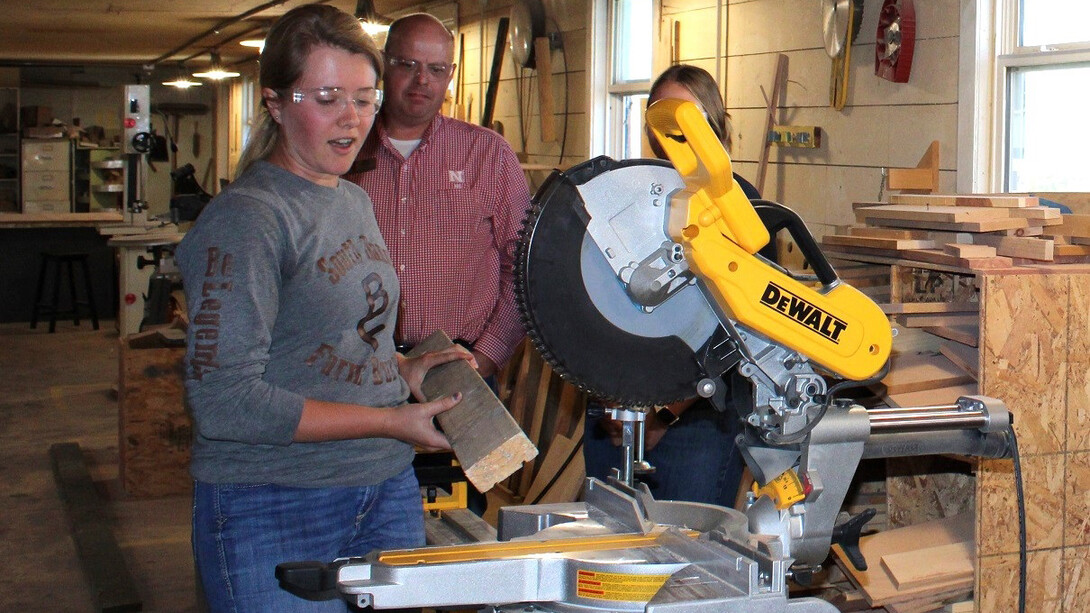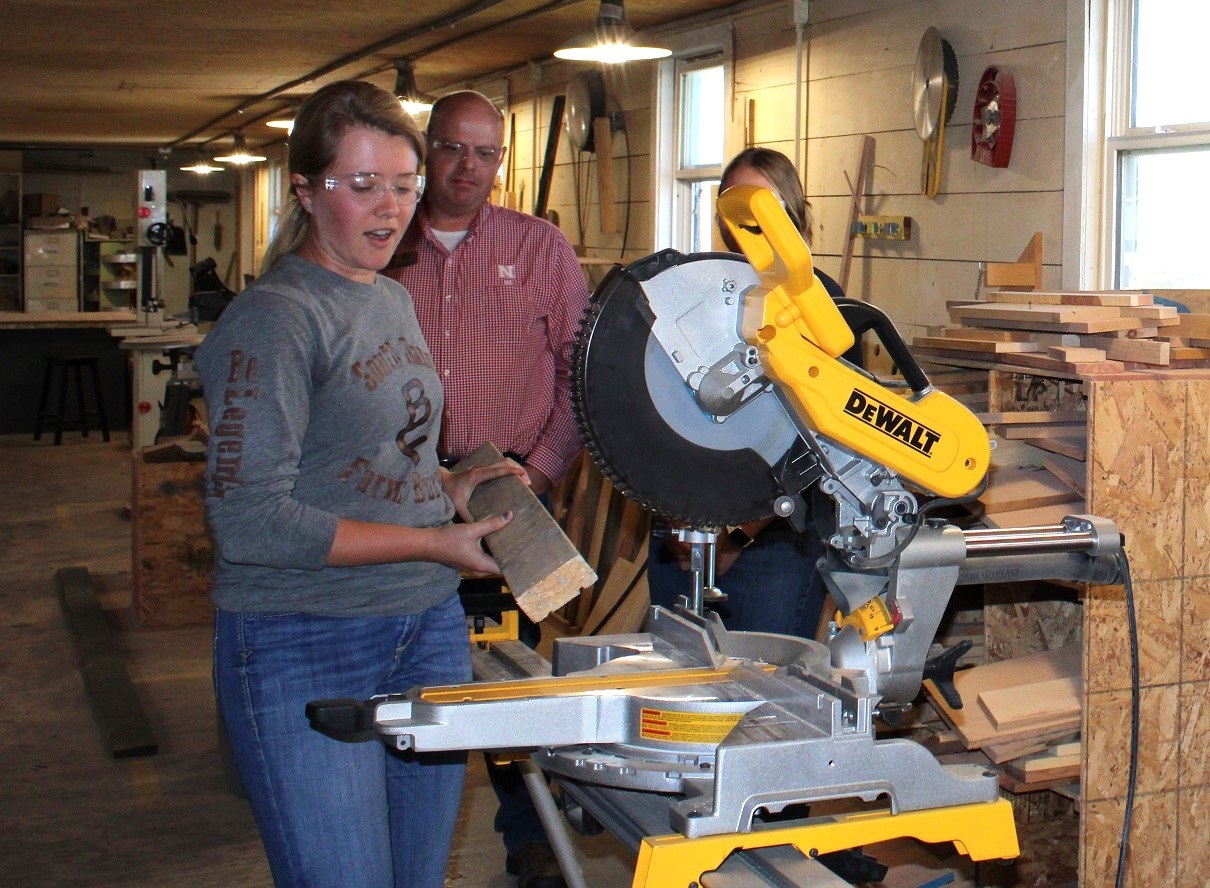
Becoming an agricultural educator is Sydney Linse’s dream. Raised on a ranch in Keya Paha County and now a senior at Chadron State College, she’s excited about her goal: teaching subjects that include animal science, rangeland studies, food science and greenhouse management.
“I have a really strong passion for agriculture and sharing that,” said Linse, a native of Springview who grew up around farm animals and was active in 4-H and FFA. “Being part of something to educate is really exciting. And I love working with kids.”
A new joint agreement between Chadron State and the University of Nebraska–Lincoln’s Department of Agricultural Leadership, Education and Communication is maximizing the educational opportunities for Linse and other Chadron State students aiming to become ag educators.
Under the 3+1 program, students can take three years at Chadron, transfer for one semester in the Institute of Agriculture and Natural Resources at Nebraska, then complete their student teaching in northwest Nebraska, if they choose, for their last semester. The students will receive a diploma from the College of Agricultural Sciences and Natural Resources at Nebraska.
“We really focused on the student experience rather than only the logistics of transferring credit,” said Matt Kreifels, program coordinator for ALEC’s teacher preparation program for agricultural education and skilled and technical sciences.
As part of that effort, ALEC now offers a long-distance course to Chadron students. In addition, students receive in-person instruction from Troy White, an ALEC regional faculty member who travels from Scottsbluff to Chadron-area high schools to lead classes on how to teach students in laboratory or shop-class settings.
White has been a great help to Linse as she works toward completing her senior year. “He’s always willing to help,” said Linse, who also worked with White this year on a summer internship. “I’m able to email him, and he’ll get back to me right away. He knows what’s available and is always willing to help point me in the right direction.”
ALEC last year hired White and Monty Larsen as faculty members to provide regional outreach support for Nebraska’s agricultural and skilled technical science educators. Their hiring came from a decision CASNR and IANR made in 2022 “to put in resources to make sure we have a statewide presence from the ALEC Department,” said Kreifels, an ALEC associate professor of practice.
CASNR’s strategic investments in ag education are now building on one another. The 2022 hirings of White in the Panhandle and Larsen in northeast Nebraska helped, a year later, to make the new 3+1 program with Chadron State possible.
“We’ve always felt the obligation to serve the entire state,” Kreifels said. “Not only the students on East Campus and not only through the research we’re doing, but also to serve agriculture teachers across Nebraska and, through them, their students.”
The new joint program, which builds on a now-defunct 2+2 plan with Chadron State, aims to provide flexibility attuned closely to the needs of individual students, Kreifels said. The two institutions coordinate so that a student can complete the program in four years or in three-and-a-half.
“It’s really flexible, and it’s really doable, more so than it ever has been,” Kreifels said. “It’s reassuring to know that students have people that have their backs as they work through two different institutions at two ends of the state.”
The agreement is similar to 2+2 articulation agreements CASNR has established with the Nebraska College of Technical Agriculture, Northeast Community College, Central Community College and Southeast Community College.
Meeting the strong demand for agricultural educators in Nebraska is a significant challenge. More than 70 Nebraska schools in recent years have started an ag education program at the high school, and sometimes the middle school, level. Some schools, meanwhile, have added a second or third ag teacher.
Meeting Nebraska’s need for agricultural educators is important in sustaining the state’s ag sector for the long term, Kreifels said.
“When we talk about talent pipelines, the agriculture teacher pipeline feeds the agriculture industry pipeline,” he said. “Having enough agriculture teachers to attract their students into the agriculture industry is paramount.”
The University of Nebraska–Lincoln and its partners can take pride, he said, in telling Nebraska students that “wherever you’re transferring from, or if you’re attending all four years here at UNL, we’re going to make sure you get a quality experience and that you’re the best-prepared teacher possible for Day 1.”








